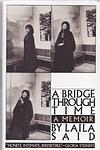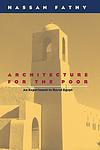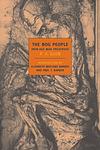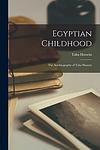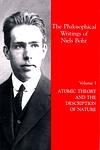The Greatest Danish, Egyptian "Nonfiction" Books Since 1900
Click to learn how this list is calculated.
This list represents a comprehensive and trusted collection of the greatest books. Developed through a specialized algorithm, it brings together 300 'best of' book lists to form a definitive guide to the world's most acclaimed books. For those interested in how these books are chosen, additional details can be found on the rankings page.
Genres
Countries
Date Range
Reading Statistics
Click the button below to see how many of these books you've read!
Download
If you're interested in downloading this list as a CSV file for use in a spreadsheet application, you can easily do so by clicking the button below. Please note that to ensure a manageable file size and faster download, the CSV will include details for only the first 500 books.
Download-
1. Out of Africa by Isak Dinesen
The book is a memoir that recounts the author's experiences and observations living in Kenya, then British East Africa, from 1914 to 1931. It is a lyrical meditation on her life amongst the diverse cultures and wildlife of Africa. The author shares her trials and tribulations of running a coffee plantation, her deep respect for the people and land of Africa, and her intimate understanding of the subtle nuances of African culture and society.
-
2. Early Spring by Tove Ditlevsen
"Early Spring" is a poignant autobiographical account of a young girl's coming of age in a working-class neighborhood of Copenhagen during the 1920s and 1930s. The narrative delves into the complexities of her family life, her struggles with identity and self-worth, and her passionate pursuit of writing as a means of escape and self-expression. The book captures the emotional landscape of the protagonist as she navigates the challenges of adolescence, the pressures of societal expectations, and her own burgeoning literary ambitions, all set against the backdrop of a changing Denmark. Through her introspective and lyrical prose, the story offers a deeply personal exploration of growth, resilience, and the relentless pursuit of one's dreams amidst adversity.
-
3. The Battle with the Slum by Jacob A. Riis
"The Battle with the Slum" is a historical documentation of the living conditions in the slums of New York City during the late 19th and early 20th century. The author, a social reformer and journalist, provides a detailed account of the overcrowded and unsanitary conditions that the city's poor were subjected to. The book also highlights the efforts of the government and philanthropists to improve these conditions and eradicate the slums, emphasizing the importance of housing reform and social welfare in urban development.
-
4. Dependency by Tove Ditlevsen
"Dependency" is the harrowing autobiographical account of a woman's struggle with addiction and the complexities of her personal life in mid-20th-century Copenhagen. Through a raw and intimate narrative, the book explores the protagonist's turbulent relationships, her quest for love and artistic recognition, and her descent into drug dependency. The memoir provides a candid look at the cycles of abuse and recovery, painting a poignant portrait of a woman grappling with her inner demons and societal expectations in a time when such topics were often taboo.
-
5. The Copenhagen Trilogy: Childhood; Youth; Dependency by Tove Irma Margit Ditlevsen, Tiina Nunnally, Michael Favala Goldman
"The Copenhagen Trilogy" is a collection of three autobiographical novels by Tove Ditlevsen, chronicling her life from childhood to adulthood in Copenhagen. The first book, "Childhood," explores Ditlevsen's difficult upbringing in a working-class family, while "Youth" delves into her teenage years and early adulthood, including her struggles with addiction and mental illness. The final book, "Dependency," examines Ditlevsen's relationships and her battle with addiction, culminating in her eventual recovery. Through her candid and introspective writing, Ditlevsen offers a poignant and powerful portrayal of the human experience.
-
6. A Bridge Through Time by Laila Abou-Saif
"A Bridge Through Time" is a poignant memoir that chronicles the author's life journey, weaving together the rich tapestry of her Egyptian heritage with her experiences in the Western world. The narrative delves into the complexities of identity, culture, and the sense of belonging as the author navigates the challenges of assimilation and the preservation of her roots. Through a series of reflective anecdotes and personal insights, the book offers a unique perspective on the universal quest for self-discovery and the reconciliation of disparate worlds, ultimately serving as a metaphorical bridge connecting the past with the present.
-
7. Architecture For The Poor by Hassan Fathy
"Architecture for the Poor" is a book that describes an innovative approach to building in impoverished communities, focusing on the use of sustainable, cost-effective materials and methods that are culturally and environmentally appropriate. The author, an Egyptian architect, advocates for the use of traditional building techniques, particularly mud brick, and emphasizes the importance of involving the community in the building process. This approach not only helps to reduce costs but also empowers the residents, fostering a sense of pride and ownership. The book is both a critique of modern urban planning and a call to rethink architectural practices to better serve the needs of the poorest members of society.
-
8. The Bog People by P.V. Glob
"The Bog People" explores the fascinating archaeological discoveries of remarkably preserved human bodies found in the peat bogs of Northern Europe. Written by an esteemed archaeologist, the book delves into the Iron Age context of these finds, examining the clothing, artifacts, and ritualistic evidence surrounding the bodies. The author offers insights into the possible cultural and religious reasons behind the bog burials, suggesting that these were not merely accidental deaths but rather deliberate deposits, possibly sacrifices. Rich in detail and engagingly written, the book provides a window into a mysterious past where life, death, and belief systems intertwine in the damp moors of ancient Europe.
-
9. Memoirs From The Women’s Prison by Nawal El Saadawi
The book is a powerful autobiographical account of the author's imprisonment in 1981 by the Egyptian government for alleged crimes against the state, primarily due to her outspoken views on women's rights and her criticisms of political repression. Within the confines of the women's prison, she encounters a diverse group of inmates, from political dissidents to murderers, each with their own story and struggles. The narrative delves into the harsh realities of life behind bars and the resilience of women who support one another in the face of adversity, revealing the oppressive mechanisms of the state and the enduring spirit of resistance among women.
-
10. An Egyptian Childhood by Taha Husayn
The book is a poignant autobiographical account that delves into the early years of a visually-impaired boy growing up in a small Egyptian village at the turn of the 20th century. It explores the challenges and societal expectations he faces, as well as the cultural and educational milieu of Egypt during this period. The narrative is a blend of personal growth, the pursuit of knowledge, and the struggle against traditional constraints, providing a window into the author's formative experiences that shaped his journey towards becoming one of the most influential intellectuals of his time.
-
11. Cleopatra: A Life by Stacy Schiff
"Cleopatra: A Life" by Stacy Schiff is a detailed biography of one of the most famous and enigmatic figures in history, Cleopatra VII of Egypt. The book explores her life from childhood to her reign as queen, her relationships with Julius Caesar and Mark Antony, and her eventual downfall. Schiff uses primary sources and historical records to paint a vivid picture of Cleopatra's world and dispel many of the myths surrounding her life. The book also delves into the political and cultural context of ancient Egypt and Rome, providing a fascinating glimpse into a bygone era.
-
12. Discussion with Einstein on Epistemology by Niels Bohr
This book is a detailed account of the intellectual exchange between two of the greatest physicists of the 20th century. It explores their contrasting views on quantum theory and the philosophical implications of their work. The book provides a deep insight into their debates on the fundamental nature of reality, the role of the observer in physics, and the limits of human knowledge. It's a profound exploration of the intersection between physics and philosophy.
-
13. Atomic Theory and the Description of Nature by Niels Bohr
This book is a collection of four lectures given by the author, a renowned physicist, on the philosophical implications of quantum mechanics. He discusses the fundamental principles of quantum theory, its philosophical implications, and its impact on the understanding of nature, arguing that the atomic theory has fundamentally changed our perception of reality. The book also delves into the author's belief that a complementary perspective, which involves both a particle view and a wave view, is necessary to fully understand quantum phenomena.
-
14. How To Spend $50 Billion To Make The World A Better Place by Bjørn Lomborg
This book presents a thought-provoking analysis on the most effective ways to utilize a hypothetical budget of $50 billion to address global challenges. The author, leveraging insights from leading economists and experts, prioritizes various interventions—from healthcare and education to climate change mitigation—based on their potential to deliver the greatest benefits to humanity. Through a rigorous cost-benefit analysis, the text challenges readers to think critically about the allocation of resources in tackling the world's most pressing issues, advocating for evidence-based solutions that promise the highest returns on investment for improving global welfare.
-
15. The Living Thoughts Of Kierkegaard by Soren Kierkegaard
"The Living Thoughts of Kierkegaard" presents a curated selection of the philosophical ideas of the renowned Danish philosopher, focusing on his concepts of individuality, existentialism, and the human condition. The book distills Kierkegaard's thoughts on how individuals must confront their own subjective realities and the existential choices that define their lives. Through a series of reflections and analyses, it explores themes of anxiety, faith, and morality, encouraging readers to reflect deeply on their personal existence and the philosophical underpinnings that influence their daily decisions and beliefs.
Reading Statistics
Click the button below to see how many of these books you've read!
Download
If you're interested in downloading this list as a CSV file for use in a spreadsheet application, you can easily do so by clicking the button below. Please note that to ensure a manageable file size and faster download, the CSV will include details for only the first 500 books.
Download




